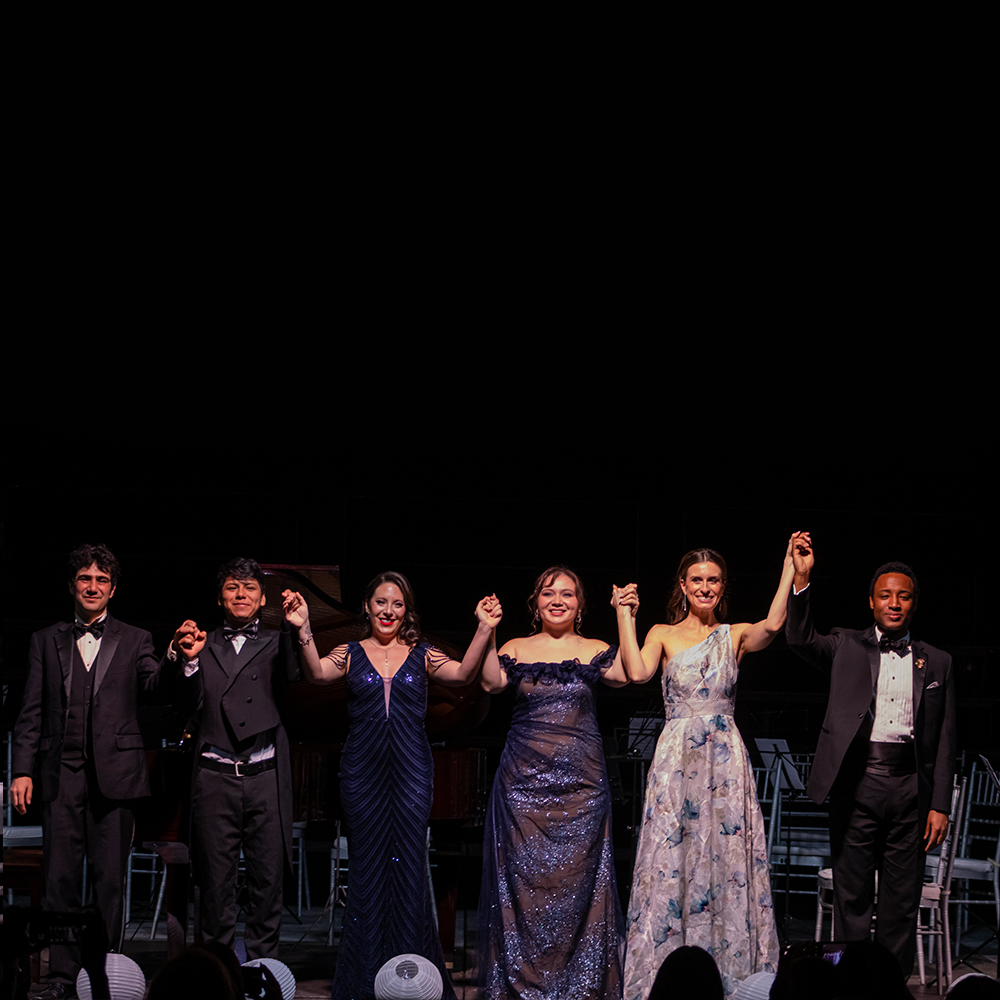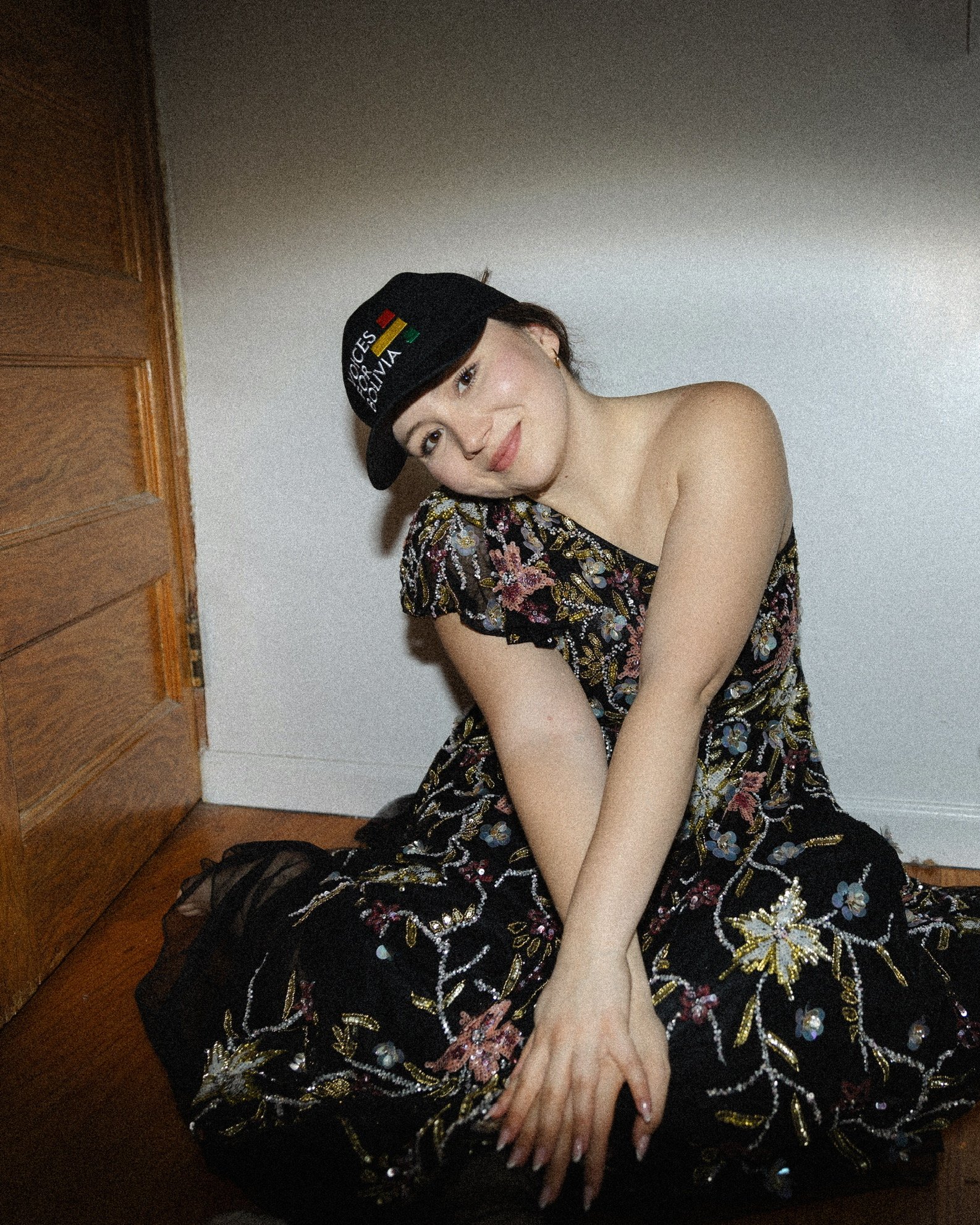Voices for Bolivia: providing aid through the power of music
On February 12, 2025, Voices for Bolivia presented their "Cantos de Vida" benefit concert. Held at the Centro de Convenciones y Eventos in Cochabamba, Bolivia, the concert is the latest event in the organization's ongoing mission to provide relief to the elderly community.
Founded by soprano and Bolivia native Shelén Hughes, Voices for Bolivia uses classical music to raise awareness and support for the elderly living in poverty throughout the country. As a performer, Hughes has appeared with companies across North and South America, and was most recently named one of the winners of the 2025 George and Nora London Foundation Competition.
360° of Opera had the chance to talk with Hughes and learn more about VfB's efforts and impact in philanthropy and the arts.
1/ What inspired you to create Voices for Bolivia? Has the scope of your mission changed or evolved since its founding?
Voices for Bolivia was born from a desire to give back to my country. The stark contrast between the opera world I was entering and the realities of life in Bolivia reinforced that, regardless of privilege, we all share the same need—to be seen. Growing up, I witnessed extreme poverty firsthand, with many lacking food, housing, and medical care. Believing in music’s power to inspire empathy and create change, I vowed to use my platform to raise awareness and financial support.
Initially, we focused on immediate relief, helping children, adults, and the elderly in extreme poverty. Our first concert raised just $200—enough to feed 500 families in Bolivia. However, we soon realized that lasting change was needed. While some organizations support children, Bolivia’s elderly are largely forgotten. Over 60% live in extreme poverty—without clothing, beds, clean water, electricity, or medical care. Many are abandoned by their families, who are struggling to survive themselves, leaving them to fend for themselves.
A turning point came when we met a man in his 90s, unable to walk, living in a cardboard shack. With no access to food, water, or even a bathroom, he is forced to drag himself onto a chair during the day and onto the dirt to sleep at night. His conditions are unsanitary and life-threatening. After meeting many more in similar conditions, we knew where our focus needed to be.
Our mission now is to establish Bolivia’s first permanent refuge for the elderly, providing shelter, meals, and medical care—entirely funded by classical music. Originally a 10-year goal, the overwhelming support has made it clear this must and can happen now. We are on track to open a home to give 50 elderly permanent care in 2026.
At the same time, our concerts have grown into an international movement, bringing world-class artists together for lasting social impact. In doing so, we not only help the most vulnerable but also create opportunities for musicians, proving that the arts and humanitarian efforts can thrive together. Seeing this vision come to life has been one of the most rewarding parts of this journey.
2/ Tell us about the concert. How did you go about curating the program, and what were some of the challenges and rewards of putting it together?
“Cantos de Vida” is our most recent concert which took place in Cochabamba, Bolivia. It holds special significance because it represents the intersection of artistic excellence and humanitarian action. I wanted to bring together internationally recognized artists who are committed to using their voices for a greater purpose. The program was designed to be diverse, featuring opera in multiple languages, zarzuela, gospel, a full orchestra, and a 200-member chorus. Classical music is not widely known in Bolivia, so presenting an entirely classical concert was a significant risk —and our biggest challenge. But the results were astonishing. We had over 800 attendees, many of whom were hearing classical music for the first time in their lives. It was a magical evening, introducing audiences to music of the highest caliber while also spreading our mission.
3/ How would you describe the situation faced by the elderly in Bolivia? What are some of the obstacles preventing access to basic necessities and meaningful relief?
The elderly in Bolivia often face extreme poverty, abandonment, and a complete lack of access to healthcare. Many have no family to support them and live in conditions that strip them of their dignity—sleeping on the floor, suffering from malnutrition, and going without medical treatment. One of the biggest obstacles is the lack of a social safety net. Many elderly individuals receive little to no pension, and public support systems are either inadequate or nonexistent. Additionally, cultural and economic factors mean that resources are often allocated elsewhere, leaving this vulnerable population completely overlooked.
This is why Voices for Bolivia exists—to step in where other systems fail and provide direct aid through the power of music.
4/ Having organized benefit concerts in previous years, how have recent efforts compared in terms of raising support and awareness?
In the beginning, our concerts were localized (NYC), but as our mission has gained recognition, we’ve been able to bring in more international artists, secure larger venues in the east coast and obtain grants that have helped us build connections both in the U.S. and Bolivia. Financially, we’ve seen a significant increase in donations. Our concerts are crucial for raising awareness and our audiences are not just supporting us because they love music—they see the direct impact of our work. Every concert now brings us one step closer to establishing a permanent refuge for the elderly.
5) How has the Bolivian community responded to these efforts? What are your thoughts on using classical music as a tool for social change?
The response has been overwhelmingly positive. The Bolivian community is seeing the performing arts being used to uplift their communities and they are becoming engaged in every way they can. We’ve had donors, over 40 local volunteers, and musicians step forward to support our mission. Classical music is an incredible tool for social change because it speaks to something universal—emotion, humanity, and connection. It allows us to reach people on a deeper level, create empathy, and unite individuals from all walks of life. Through music, we’re taking our voices beyond the concert hall—we’re educating, inspiring, and mobilizing people to take action.
6/ Are there upcoming events you can tell us about? How do you see the next few years developing in terms of the organization’s impact?
Yes! We have an exciting series of concerts planned for fall 2025. As of now, all of our performances will be on the East Coast and Bolivia, but we are also preparing to bring Voices for Bolivia to European audiences soon.
Our biggest goal moving forward is to secure $200,000 to open our first permanent home for the elderly. With this amount, we will be able to provide 50 elderly individuals with housing, medical care, nutrition, community, and dignity for one year. That means it costs just $4,000 per year to ensure an abandoned elderly person has a safe and comfortable home.
We are actively seeking partners who want to build long-term relationships with us, as well as sponsors who believe in our mission. Voices for Bolivia is growing into a movement, and this is just the beginning!
-interview by Logan Martell.
-photography courtesy of VFB.




